The Sympathizer ’s Hoa Xuande Is a Perfect Double Agent—And a Natural Leading Man
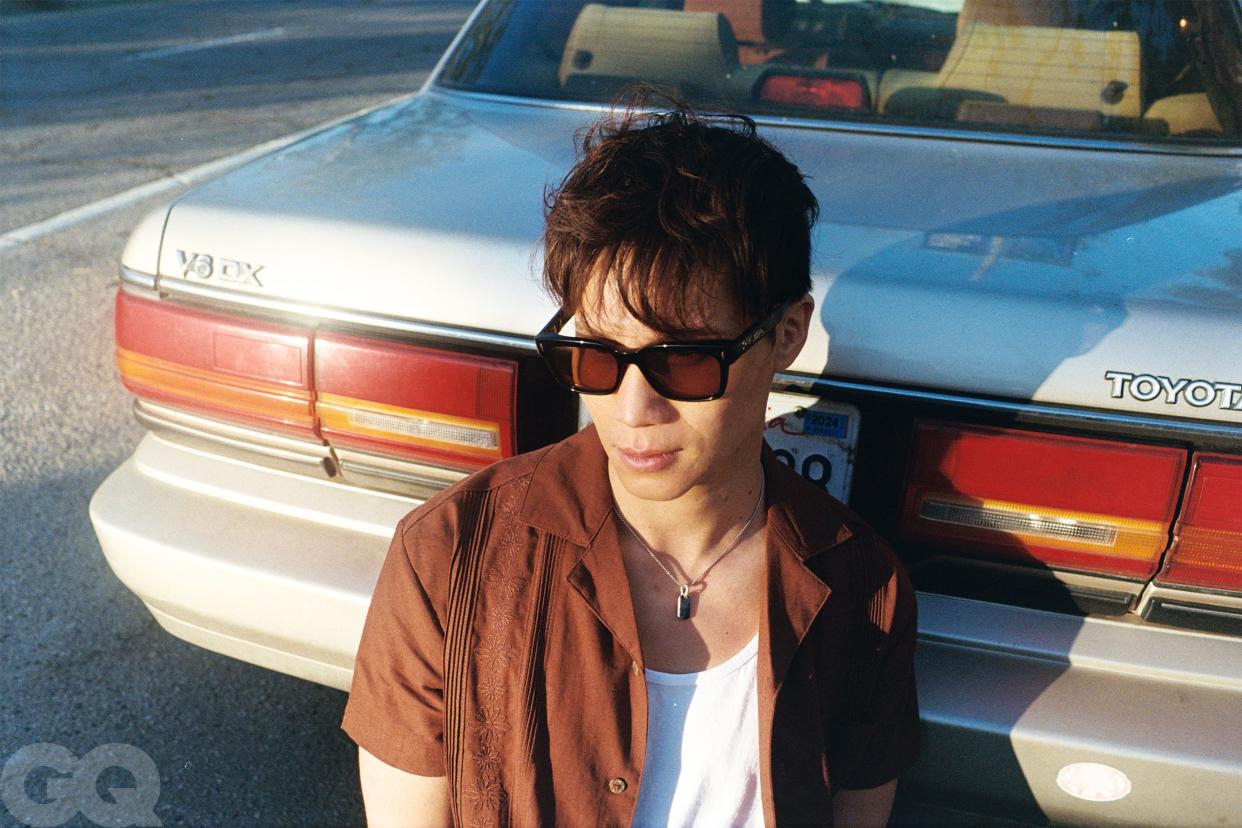
- Oops!Something went wrong.Please try again later.
- Oops!Something went wrong.Please try again later.
- Oops!Something went wrong.Please try again later.
The unnamed narrator of Viet Thanh Nguyen’s 2016 best-selling novel, The Sympathizer, is a Communist spy embedded as a CIA-trained captain in the South Vietnamese secret police during the final days of the Vietnam War. The story opens on the eve of the fall of Saigon, as the narrator follows his charge—a comical, self-important army general—to California, where he must maintain his double-agent cover while surviving as a refugee.
In HBO and A24’s limited-series adaptation, whose second episode premieres this Sunday, The Captain is portrayed by Australian newcomer Hoa Xuande. It’s his biggest role to date—and perhaps the most substantial Vietnamese-language role in any Hollywood production ever. Like his character, the 36-year-old says he grew up caught between two worlds. Born in Sydney to one-time Vietnamese refugees and raised in Melbourne, he recalls struggling to fit in as an Australian, yet also feeling displaced from his ethnic heritage and culture.
“The Captain is a spy and he plays different allegiances to the different countries, ideologies, and people that he works for,” Xuande says. “But on a deeper level, it's a question of who he really is. I really wanted to investigate the emotional life of not knowing where you belong, and I really leaned into my own teenage experiences—doing whatever I could to fit in.”
With piercing eyes and a withering, deadpan gaze, Xuande brings out the at times satirical humor of The Captain’s exploits in America—from landing a job under a cartoonish Oriental studies professor (Robert Downey Jr., who plays several different characters in the series) to pursuing a romance with the department secretary, Ms. Sofia Mori (Sandra Oh). Importantly, he also fills in the show’s heavier storylines with gravitas: Later in the seven-part series, The Captain returns to Vietnam, where he’s forced to come face-to-face with his truest self.
Ahead of the HBO premiere of The Sympathizer, Hoa Xuande hopped on a call with GQ from his home base in Los Angeles to chat about getting into character—language intensives included—and working opposite legends both American and Vietnamese in his first leading role.
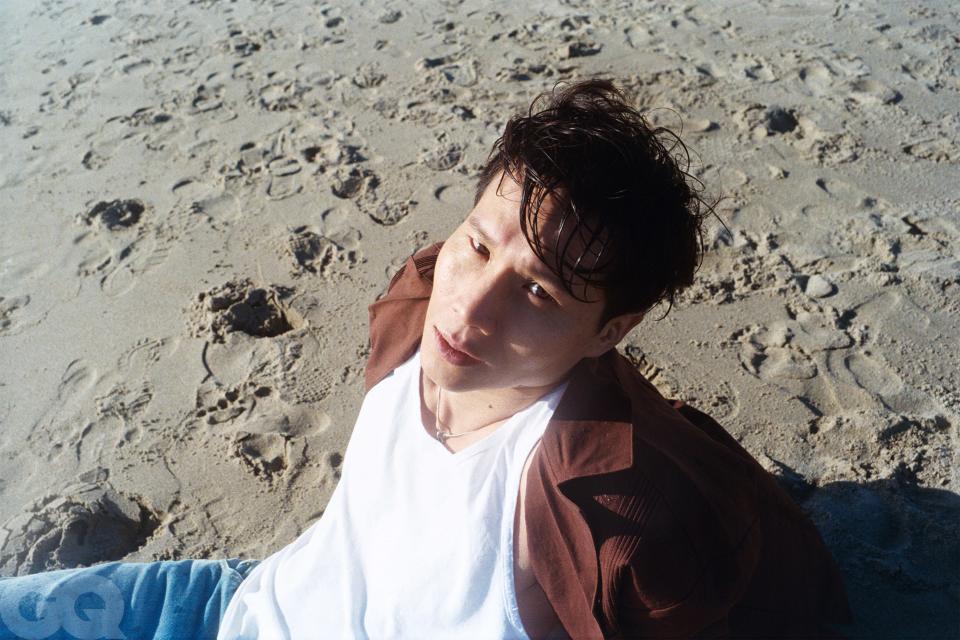
GQ: Major congrats on the show. How does it feel?
Hoa Xuande: Like winning the lottery.
Had you read The Sympathizer before you auditioned?
I randomly bought the book two years ago, but I had only read the first three chapters. Life happened and I never finished it. When I saw the casting notice, I recognized the name, and by the time I got the callback I found it and read it cover to cover.
From one Viet Kieu to another: Your Vietnamese in the show is great. Did you grow up with it?
Growing up, none of my friends were Asian, let alone Vietnamese. My parents spoke to me in Vietnamese at home, but I honestly felt a lot of shame in speaking my language—so I just refused. I replied to my parents in English. I was rebellious in other ways too. But I think as you get older, you start trying to be comfortable with who you are, and you try to make amends for the past.
So did you have to take some lessons?
I’d spoken Vietnamese on a few other Australian shows before, but they put me into a two-week crash course to relearn the grammar. It was like going to first grade again—learning all the vowels and practicing pronunciations. And then I had to learn words I would have never used in my everyday vocabulary, like public execution or commandant. I also made a conscious decision to use the southern Vietnamese accent, like my parents’ accent, to make it more true to the character.
How did your background prepare you to play The Captain?
I spent a lot of my adolescence playing into what I thought I was supposed to be—playing Australian football and doing other things to try to fit in. The Captain also avoids doing anything that pitches him as an outsider. And that leads a lot of people to being really closed, insecure, and emotionally locked up a lot of the time. Sometimes you develop a dark sense of humor.
There’s a lot of humor in both the book and the show, despite the events being quite traumatic.
I think innately as humans, if we didn't deal with [trauma] in a funny way, we would probably end up wanting to kill ourselves. We can all relate to humor. And you have to poke fun at things, because sometimes they're so dark you could sit in them and perish away. I hope people can see that [refugee stories] are on the same three-dimensional level as any other story told about the Vietnam War.
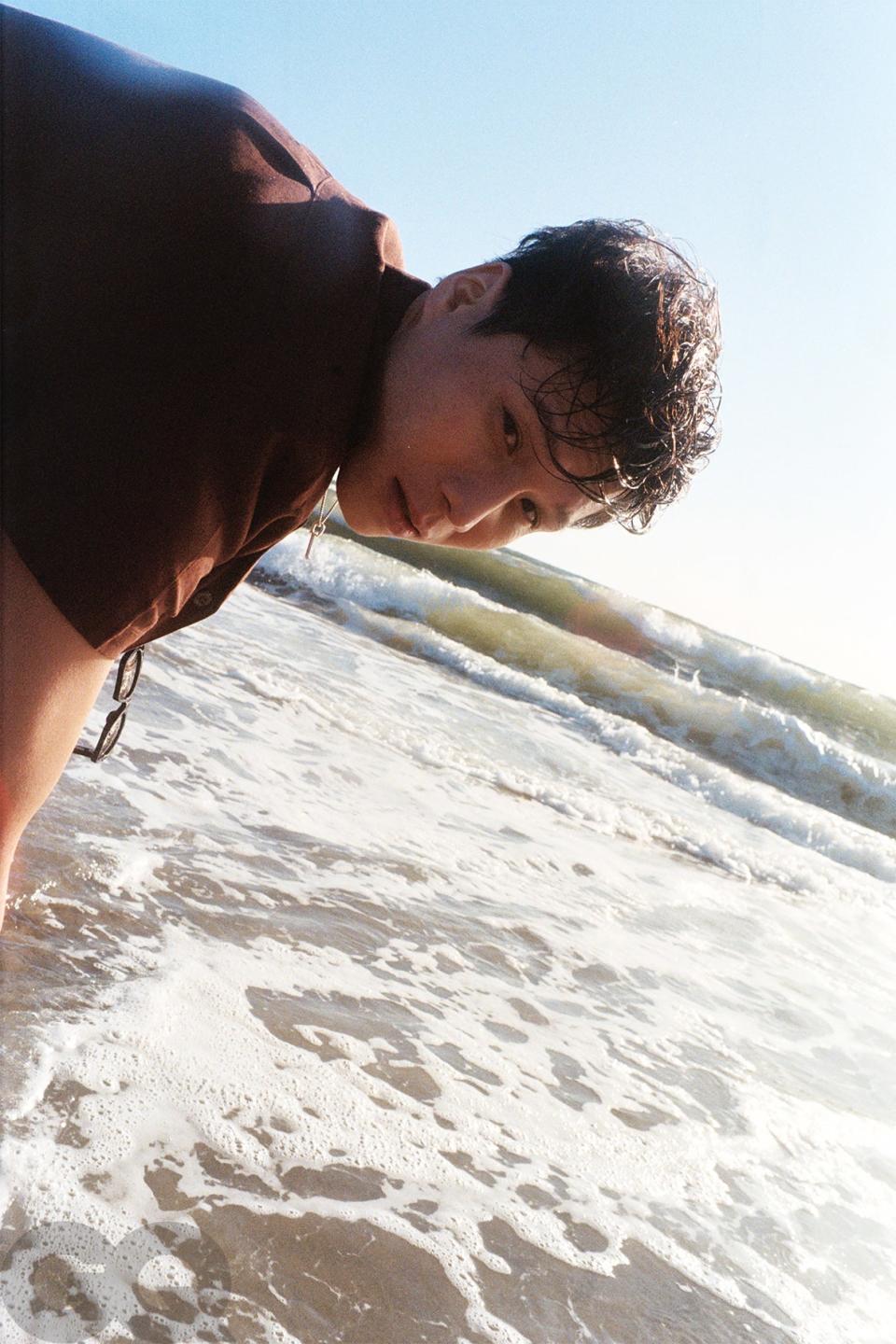
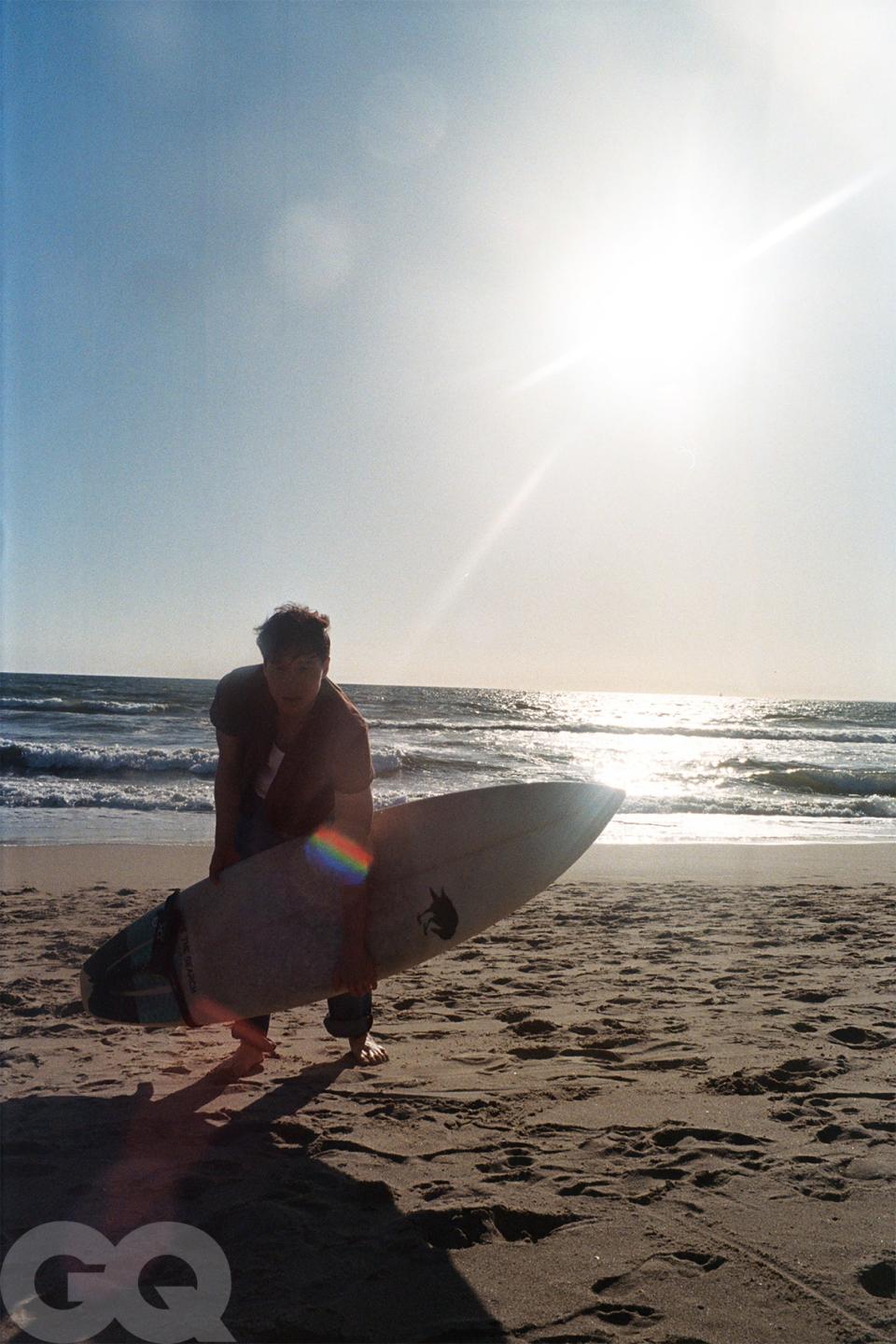
That’s something that makes this so different from other Vietnam War media.
Yeah, like the major’s wife and mom give these little monologues that offer insight of their experience of dealing with trauma and moving to a new place. In other movies, it’s nothing more than a person crying onscreen. Here, they’re given dialogue to express that.
What was it like working with Robert Downey Jr. and Sandra Oh?
When I first found out I was going to be on set with them, I was like, What have I gotten myself into? Have I jumped too deep in the pool? On the fourth day of filming, I had my first scene with both of them—and it was a really intimate scene with Sandra where I ask her out on a date, and then Robert interrupts. But Sandra was so lovely to me. Sometimes she would look over and be like, “You know, if you don’t feel comfortable saying something, just let me know and I’ll speak on your behalf.” I really appreciated that, being so green. She’s just as deep and energetic off-screen as she is onscreen. I say Sandra mothered me and Robert fathered me.
Were you nervous about shooting the more intimate scenes?
That happened six weeks into shooting, so I had time to mentally prepare. And it was all done very professionally: You’ve got an intimacy coordinator and it’s all choreographed, which is bizarre to think about. It’s like a dance. You move your feet, your hands, and your body—but you’re almost naked. But halfway through the scene, I turn my head and deliver a monologue, which was actually helpful because I had something to direct my energy towards. It wasn’t as bad as I thought it would be.
Do you think The Captain really ever falls in love?
I think in that moment with Ms. Mori he was truly trying to connect because so often he can’t, or so often he’s not allowed to. He’s battling ideologies that won’t allow him to reveal his true nature. And in that moment maybe he’s truly able to let go. But it’s like, are you saying it because you’re trying to feel something or are you saying it because you really do feel it?
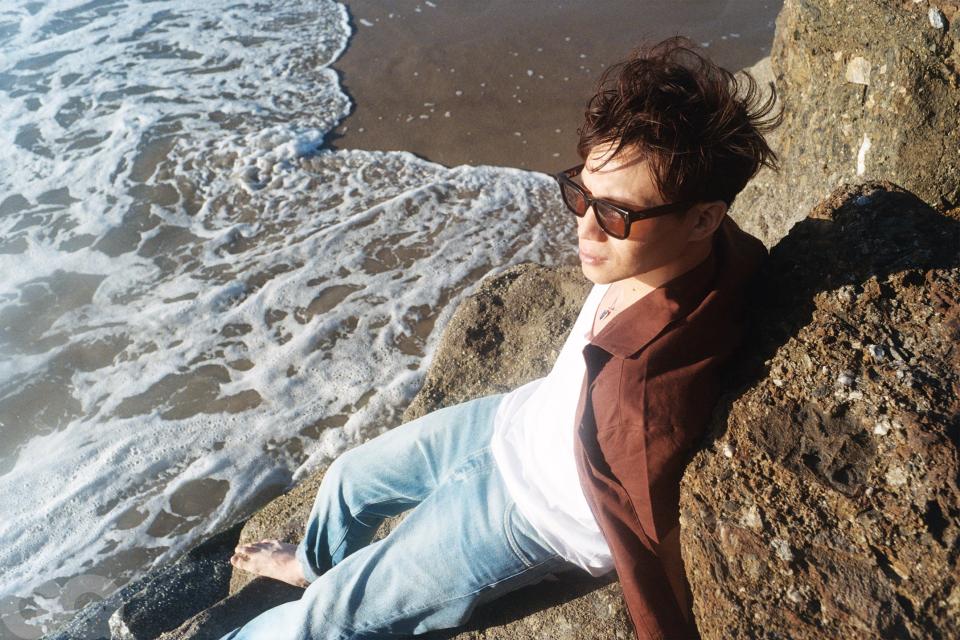
Working so closely with Robert, did any advice stand out?
Robert is just so witty—he has comebacks for days, he improvises, he takes a scene in a completely different direction and leaves you with your pants down. One thing he told me was to just keep things fresh. Sometimes you go over the lines in your bedroom, and then you say them 20 times on set. So each time you can make a new choice. Say it in a different way. Robert taught me to relax and have fun.
You also get to work with some Vietnamese legends, like Ky Duyen, the MC for the Vietnamese variety show Paris by Night. Were you familiar with it?
My mom watched it, so I knew it through her. So when I met [Ky Duyen], I was like, Oh, my God, that’s the one my mom keeps talking about. It was cool to meet a celebrity my mom was obsessed with, too.
Who in the cast do you think fits their character the most?
I think everyone is so perfectly cast, but we have this joke that Duy [Nguyen] is basically his character, Man, because he’s so crafty and shifty. He’s a really smart kid, and so he thinks more than he says, and he’s got these little insults and comebacks. He knows more than he lets on.
Have you been able to watch it yet? Are you happy with how it turned out?
Yes, I have. I’ll let the critics make the call—I guess I’m always critical of my work. I tend not to watch myself back. But I wanted to watch this to see if it matched the story I remembered from the book. To be honest, a lot of it exceeded my expectations. It’s shot so beautifully, and there are so many beautiful performances throughout. I love Fred [Nguyen Khan] as Bon. His stoicism. He’s just such a strong character. Toan [Le] as the general has so many hilarious moments. And Alan [Trong] who plays Sonny—his role really tests my character, and we had such good chemistry.

It was all shot in Thailand, right? Because they obviously couldn’t shoot something this political in Vietnam.
Yeah, I understand why they had to. But Thailand made a great substitute. It’s only an hour away, and the climate and culture is very similar. But they found a lot of places that could resemble Vietnam, and the art department did a great job dressing the streets. It reminded me of some of the places I visited on trips to Vietnam, when I was young.
The conclusion of the series, like the book, is somewhat open-ended—do you have a personal interpretation?
I think that question really pertains to The Captain’s ideology. Who does he lean into more? What does he lean into more? What does he identify with more? I think these are questions a lot of us face. But the big learning that The Captain has at the end of the book is that nothing is more important than independence and freedom—and the key is how you interpret the word nothing.
PRODUCTION CREDITS:
Photographs by Adali Schell
Grooming by Anna Bernabe
Originally Appeared on GQ

